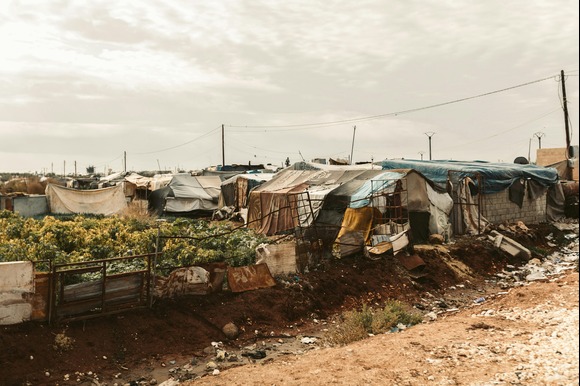The UK government has unveiled the details of its planned foreign aid reductions, with significant cutbacks targeting children’s education and women’s health programmes across Africa.
Announced earlier this year, the government confirmed in February that it would reduce foreign aid spending by 40% — dropping from 0.5% of gross national income (GNI) to 0.3%. This reduction is aimed at reallocating funds to increase defence spending to 2.5% of GNI, following pressure from the United States.
A newly released report and impact assessment from the Foreign Office show that the steepest reductions in aid for 2025 will be in Africa. Cuts will primarily affect initiatives related to women’s health and water sanitation, which the government acknowledges could increase the risks of disease and mortality.
Aid organisations have voiced strong opposition, warning that the reductions will have devastating consequences for the world’s most vulnerable populations.
Despite these concerns, the government has said it will maintain funding for multilateral aid organisations, such as the World Bank and the Gavi vaccine alliance. It also pledged to sustain humanitarian support in crisis regions including Gaza, Ukraine, and Sudan.
Baroness Chapman, the UK’s development minister, defended the cuts, stating: “Every pound must work harder for UK taxpayers and the people we help around the world. These figures show how we are beginning to do that through having clear focus and priorities.”
The Foreign Office noted that the cuts result from a comprehensive, “line-by-line strategic review of aid” conducted by the minister. This review emphasised “prioritisation, efficiency, protecting planned humanitarian support and live contracts, while ensuring responsible exit from programming where necessary.”
While funding to some countries through bilateral aid—direct government-to-government support—will be reduced, future funding cuts may also affect multilateral organisations deemed to be underperforming. However, the government has not yet disclosed which countries or organisations will face reductions.
Sarah Champion, Chair of the International Development Committee, criticised the move, saying it appears that the most significant costs “will come at the expense of some of the world’s most vulnerable people.”
Liberal Democrat spokesperson on international development, Monica Harding, said that cutting the UK’s aid budget to “its lowest level this century will have an appalling impact on some of the world’s poorest and most vulnerable people.”
Harding added: “This is only the beginning – we will see far deeper and crueller cuts next year when most of the reduction happens.”
Bond, a UK-based network of international development NGOs, said it was evident that the government is “deprioritising” funding for education, gender initiatives, and crisis-stricken regions such as South Sudan, Ethiopia, and Somalia. Surprisingly, cuts also affect the Occupied Palestinian Territories and Sudan, despite prior assurances that support to those areas would be maintained.
Bond’s policy director, Gideon Rabinowitz, expressed serious concern: “It is concerning that bilateral funding for Africa, gender, education and health programmes will drop. The world’s most marginalised communities, especially those facing conflict and women and girls, will pay the highest price for these political choices. At a time when the US has gutted all gender programming, the UK should be stepping up, not stepping back.”
Unicef, the UN agency supporting children, said the cuts “will have a devastating and unequal impact on children and women,” calling the decision “deeply short-sighted.”
Philip Goodwin, Chief Executive of Unicef UK, urged the government to adopt a fresh strategy: “We urge the government to adopt a new strategic approach that places vulnerable children at the heart of its aid programmes and policies. At least 25% of aid should be directed to child-focused initiatives, ensuring that children’s health, nutrition, education, and protection are prioritised.”
The charity Street Child, which helps provide education access to children in Sierra Leone, South Sudan, and the Democratic Republic of Congo, said British aid reductions will bring some of its key programmes to an end.
Street Child CEO Tom Dannatt called education the “greatest long-term builder of hope” and described the reduction as “sad and short-sighted.”
He warned: “Children who used to go to school will not go to school. More children will be found roaming the streets or working in fields, unable to develop their potential. They should be in classrooms learning and building brighter futures for themselves and their societies. But due to these cuts, especially for the poorest children in the poorest countries, that’s no longer the reality.”
Foreign aid has faced growing scrutiny in the UK in recent years, with some ministers admitting that public support for overseas spending has waned.
Among the few organisations shielded from the cuts is the World Bank. The Foreign Office confirmed that the UK will contribute £1.98 billion to the World Bank’s International Development Association (IDA) over the next three years. The IDA supports the world’s lowest-income countries and aims to assist 1.9 billion people globally.
The push to increase foreign aid began under Labour governments led by Sir Tony Blair and Gordon Brown. In 2013, under David Cameron’s Conservative-Liberal Democrat coalition, the UK met its target of spending 0.7% of national income on overseas aid — a figure that was later enshrined in law in 2015.
However, in 2021, the Conservative government reduced the spending to 0.5%, citing economic pressures stemming from the COVID-19 pandemic.






